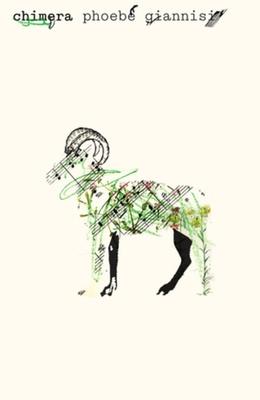In her third collection in English, Phoebe Giannisi lays out her vision for a chimeric poetics that blends field recordings, state archives, and ancient texts. The center of Chimera engages with a three-year field research project on the goat-herding practices of the Vlachs, a nomadic people of Northern Greece and the Southern Balkans, who speak their own language. In these poems, day-to-day activities such as shearing and shepherding mix with snippets of conversations, oral tradition, and song--locating a larger story in this ancient marriage between humans and animals. Through her poetry and fieldwork, this mytho-historical connection between metamorphosis and utterance takes form in what the Greek newspaper Kathimerini calls "a bold achievement....a studio wherein poems and other texts, other voices, become exhibited."

In her third collection in English, Phoebe Giannisi lays out her vision for a chimeric poetics that blends field recordings, state archives, and ancient texts. The center of Chimera engages with a three-year field research project on the goat-herding practices of the Vlachs, a nomadic people of Northern Greece and the Southern Balkans, who speak their own language. In these poems, day-to-day activities such as shearing and shepherding mix with snippets of conversations, oral tradition, and song--locating a larger story in this ancient marriage between humans and animals. Through her poetry and fieldwork, this mytho-historical connection between metamorphosis and utterance takes form in what the Greek newspaper Kathimerini calls "a bold achievement....a studio wherein poems and other texts, other voices, become exhibited."